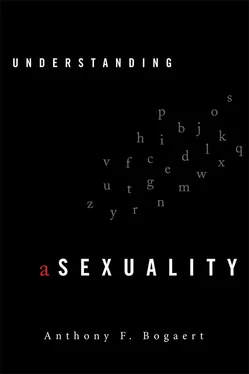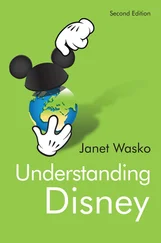Here is one final food example: Humans have long searched for the perfect aphrodisiac to drive their lovers wild and to increase their sex drive/potency. In fact, countless animals have been slaughtered and others driven to near extinction so that humans could extract and then ingest their body parts in the name of better sex. The Chinese seem especially susceptible to the (often misguided) notion that sexual powers reside in food, sometimes with dire ecological consequences. For example, the Chinese belief that the scales of the pangolin, or scaly anteater, have aphrodisiac qualities has led to the near extinction of this animal in Southeast Asia. Similarly, the Chinese belief in the aphrodisiac qualities of the rhino’s horn, with its suggestive phallic shape and angle, has also been this animal’s undoing, with it likewise being driven to near extinction. Of course, the fact that humans believe that sex and what we ingest are related, even if they are not (and thus foods have no true aphrodisiac qualities), is also testament to the fact that humans imbue nearly everything around us with special sexual meanings.
In short, it does not take long to find sexual connections to what seems like, on the surface at least, an aspect of our culture and lifestyle—food—that has no sexual relevance. For closure’s sake, let’s explore how these food examples might impact asexuality. In the first example, if dieting and related body-image issues are often driven by mating concerns, might asexual people never or rarely have dieting problems? Perhaps even a bolder prediction could be made: there may be no asexual bulimics (or at least no asexual people who have become bulimic). This is not to say that asexual women may not be concerned about their body image for reasons other than sex/mating (i.e., finding a romantic partner if romantically inclined) but I expect their body-image issues and control of food consumption to differ from those of sexual women.
Let’s return to the second example, and take, for the sake of argument, a skeptical view of asexuality, along with a Freudian bent. Some might argue that so-called asexual people are extremely repressed sexual people, and thus the level of sublimation in them should be even higher than in average sexual people. Hence, one might pose the following question, perhaps somewhat tongue-in-cheek: Should all asexual people be fat? However, if there is no “sexual” psyche to operate on in asexual people, then sublimation should not occur (i.e., overeating or any other defensive behaviors to deal with this bottled-up sexual energy; see chapter 12 on humor and sex). Thus, should they be thin, or at least not overeat? There are some interesting studies that suggest that sexual energy in repressed men, after being stimulated by an attractive woman, is defensively discharged (e.g., by unknowingly creating sexual double entendres or “Freudian slips”; see chapter 12 on humor). If so, there may be future research studies examining how asexual people respond to such sexual cues. Also, if one disregards the quasi-Freudian analysis altogether (and some would certainly think it is bunk!), perhaps one should expect asexuals to become pleasantly plump, as their appetitive drives should be more focused on food (and not sex) in a culture that offers caloric abundance.
In the third example on taste preferences, should asexual people, if not only sexless but also somewhat genderless (see chapter 6), be immune to the influence of sexual hormones, not just in their sexual preferences, but also indirectly in food preferences? There could be some interesting studies waiting in the wings related to menstrual cycle fluctuations in asexual women, and the degree to which their food preferences are affected by such fluctuations.
Is there any research on food-related behavior and/or weight in asexual people? Not much. In one study, I found that asexuals were slightly lighter than sexual people (Bogaert, 2004). Does this mean, then, that they are less inclined to “sublimate” with food, because there is no sexual energy to sublimate? Not necessarily. These were average differences, and so there was certainly a range of weights for asexual people in that study. Moreover, the asexual people were slightly shorter, so the decreased weight might have been partly a function of the slightly smaller stature of asexual people relative to sexual people (see more on this in chapter 13). Third, in a follow-up study, I found no difference in weight between asexuals and sexual people (Bogaert, in press-a). Fourth, weight is, of course, a bit of a crude marker of food-related habits, some of which may still differ significantly between sexual and asexual people. Thus, more research needs to be conducted on food-related behaviors in asexual people. One thing is for sure, though, regarding eating habits and asexuality: Our planet would likely be a better place, ecologically speaking, if more people were asexual, because asexual people are not likely to hunt down animals to consume them for their real or imagined effect on increasing libido and potency.
In this chapter, I attempted to reveal how deeply embedded sex is in our lifestyle and culture, and to argue that it should give us pause when we think sex is removed from our day-to-day activities and even our loftiest of cultural practices. For example, our aesthetic sense is undoubtedly affected by our attractions, and our sexual attractions are particularly potent ones when artists apply paint to canvas (or create work in any other medium). Even food and its consumption—the example I chose because I felt, at least initially, that it is immune to the powers of sex—are in reality often influenced by sexual issues. Finally, the analysis in this chapter may offer a glimpse into the sometimes alien and disconnected reality of an asexual person as he or she resides on Planet Sex.
CHAPTER 12
(A)sexuality and Humor
My aunt told me a joke or, as she called it, “a little story.” A man is at the dentist with an impacted wisdom tooth. Needing oral surgery, the man is advised by the dentist that a Novocain injection is necessary. Unfortunately, for some reason, the injection does not seem to numb the man’s mouth. So, the dentist advises another injection of Novocain. This second attempt at numbing the man’s mouth also does not seem to work. Somewhat perplexed, the dentist next advises that a general anesthetic will be necessary to put the man under. However, even this approach is not effective, as the man remains awake and alert. A bit desperate now, the dentist reaches into the back of the medicine cabinet, and pulls out a bottle of blue pills.
The man asks, “So, what’s that?”
“Viagra,” the dentist answers.
The man exclaims, “Viagra! But why?”
“Well,” the dentist replies, “because you’re going to need something to hold on to when I pull that damn tooth!”
The content of humor is often sexual in nature. Why? It may partly have to do with our tendency to experience tension in relation to sexual matters, and this tension may serve as a readably accessible psychic “fuel” for driving the mechanics of laughter and humor. The philosopher/poet Herbert Spencer (1860) and the psychoanalyst Sigmund Freud (1960), along with more recent theorists (Zillmann & Bryant, 1980), have championed variations on “tension relief” models of humor, partly to help explain the sex/humor association, although these models can be applied to other tension-related content in humor too.
Sexual tension can come in two forms. First, there is what might be called a “natural” kind of sexual tension, as human sexual response is associated with a buildup of both physical arousal (e.g., vaginal lubrication, erections) and psychic arousal (feeling “turned on”). Yet even catching a glimpse of a hot-bodied passerby has the ability to arouse some titillating psychic tension. Thus sex is naturally associated with tension, both when actually engaging in it and when we are briefly reminded of it. Some sexual tension, however, is often more neurotic in nature. This is the kind of tension to which Freud and others largely referred. Neurotic sexual tension is created by most cultures in their tendency to limit and control sexual expression. Parents, teachers, lawmakers, police, and others are the primary agents of this control, as they act as socializers and enforcers of the rules and regulations of sex. In short, people have bottled-up neurotic sexual tension because they can’t always do what they want sexually. This is a fact of civilized life, at least if you believe Freud and similarly minded scholars. Moreover, even the most sexually liberated among us cannot entirely escape these repressive clutches of the agents of civilized society, and thus even the most sexually liberated people still retain some residual neurotic sexual tension. Some people, though, have more pent-up neurotic sexual tension than others, perhaps because of their sensitive dispositions or perhaps because of a particularly rigid and repressive childhood.
Читать дальше












